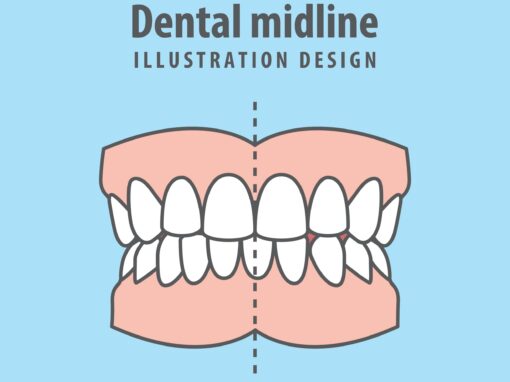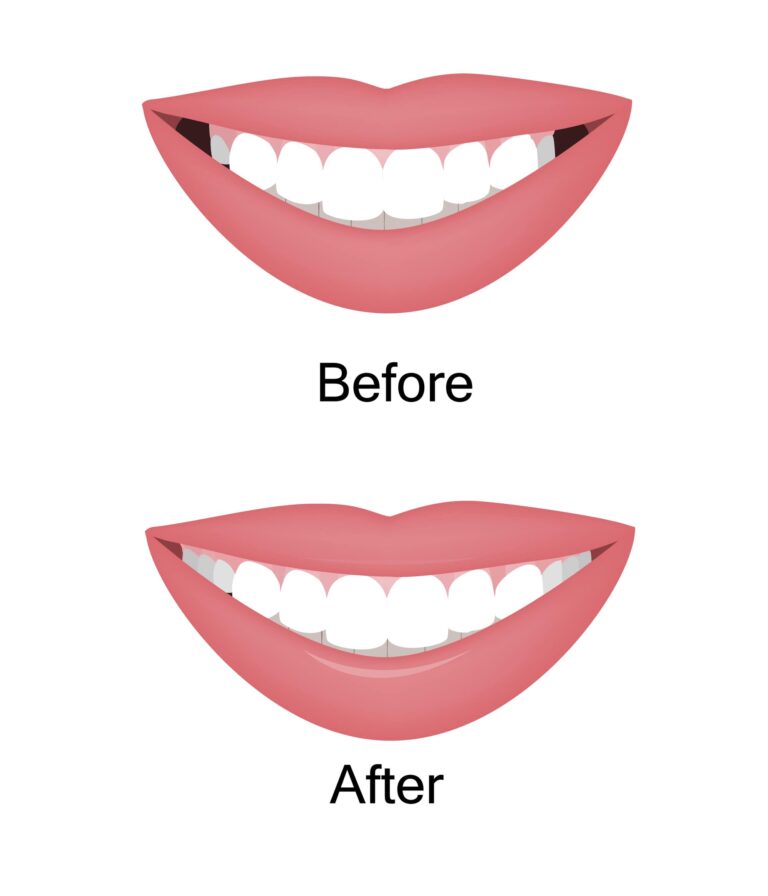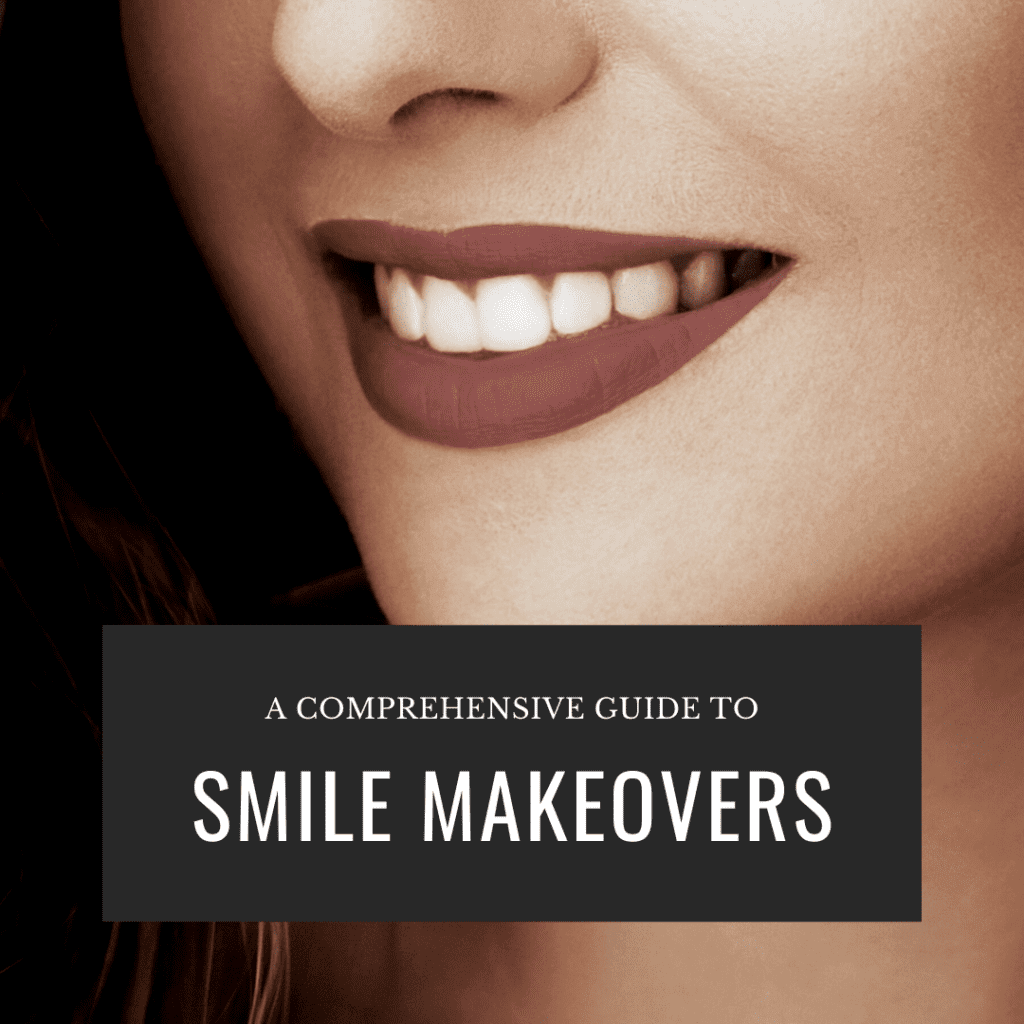When you think of the word “smile,” what does it conjure up in your mind? If you are like most people, then it probably brings to mind a happy smile on someone’s face. This is not surprising since smiling has been scientifically proven to have a positive effect on our mood and outlook. However, there is more to a smile than just being expressive. In this blog post we will discuss all of the factors that a cosmetic dentist uses when completing a smile makeover. We will talk about smile design: facial aesthetics, gum aesthetics, microaesthetics, and macro aesthetics; as well as all aspects of dental anatomy.
Smile Design
Smile design is about more than making your teeth look beautiful. A good cosmetic dentist takes the four principles of a smile design into account when designing a smile makeover to create a natural-looking, aesthetically pleasing smile that will also function properly. These four principles include:
- Facial Aesthetics refers to the face as a whole. Cosmetic dentists will consider things like how your facial muscles are affected by smiling or speaking when designing your new smile.
- Gum Aesthetics refer to how your gums look before any treatment begins. When planning out your treatment plan, cosmetic dentists will take into account gum recession (if present), gum color, height of the gum line, and other factors.
- Microaesthetics are the small details of your smile. This includes things like tooth color, enamel texture, dentin transparency, and more.
- Macro Aesthetics are the overall aesthetics of your smile when looking at it from a distance. Cosmetic dentists will consider things like the position of your teeth, the shape and size of your teeth, and the overall symmetry of your smile.
Dental Anatomy Affected by a Smile Makeover
When it comes to dental anatomy, there are a number of factors that your cosmetic dentist will take into account. This includes the lips, midline, smile line, teeth, gums, incisal edge position, buccal corridor, and emergence profile.

Lips
Your lips act as a frame for your smile, meaning the shape and size of your lips are an important part in determining the overall appearance of your smile. The shape and size of your lips can help or hinder the appearance of your teeth, which affects your overall smile.
Midline
Your midline is the imaginary line that spans from between the eyebrows to the top of your upper lip, and bisects your face into two parts. Although perfect facial symmetry is rare, having a symmetrical midline is important for giving your face an even appearance. This is especially important when it comes to smiling, as an uneven midline can cause your smile to look lopsided.
Smile Line
The smile line is the imaginary line that travels between your lower lip and upper teeth. Ideally, this line between the lower lip and upper teeth should be parallel, as well as the line between the lower gums and the lower lips . Once the smile line has been determined, the shape and size of the new restorations can be made so that they complement this smile line.
Teeth
For a successful smile makeover, having healthy and strong teeth is essential for providing an adequate foundation that will support new restorations such as veneers or crown. When it comes to teeth, however, your cosmetic dentist has a variety of factors to consider. This is rightly so, since dentists are essentially tooth experts. For a smile makeover, your dentist will consider the shape, length, color, translucency, texture, and angle of your teeth. This includes the upper central incisors as well as other teeth in the front (premolars) or back (molar).
Gums
The appearance and health of your gums is also essential to giving you a symmetrical smile that will help provide balance for your face. For example excess gum tissue, gums that have receded, or gums that are uneven in color, shape, or size, can all negatively affect the look of your smile. Your dentist can fix this by performing a gum shaping procedure, however they will also need to pay attention to the oval or circular shape of the gum line depending on the tooth.

Incisional Edge Position
The incisal edge is determined by your upper teeth and how far they extend down into the mouth. In a smile makeover, all the other teeth will be positioned based upon the incisional edge position. Furthermore, the incisional edge helps to ensure good communication and the articulation of “F” and “V” sounds.
Buccal Corridor:
The space that exists between your teeth and cheeks in the corners of your mouth when you smile is known as the buccal corridor. Small buccal corridors are linked to better-looking smiles.
Emergence Profile:
The profile of your teeth when viewed from the side is known as the emergence profile. This profile determines how full or sunken a person’s smile appears, so your cosmetic dentist will take care to make sure that the teeth are angled properly.
As you can see, there are many factors that go into creating a beautiful and natural-looking smile. By understanding all of the different aspects of smile design, you can work with your cosmetic dentist to create a treatment plan that is perfect for you. Contact us today at Smile Drs. to schedule a consultation and find out how we can help you achieve the smile of your dreams!



